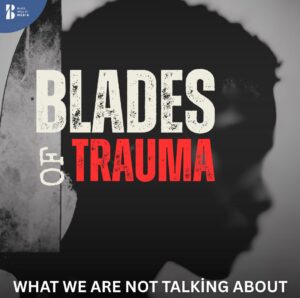Mental Health
The Emotional Side of Neurodiversity
“Understanding the Unspoken Challenges”
Dianne Greyson Thought Leader, Author, SpeakerContributor
I have seen many articles about neurodiversity over the last couple of years. This year seems to be a peak of information, advising and supporting those who are neurodiverse.
What I haven’t seen a lot of in articles are discussions about the emotional side of neurodiversity, I may have missed it, however, it seems to me that when talking about neurodiversity people should consider discussing the emotional aspect too.
Research shows that individuals who are neurodiverse often have difficulty regulating their emotions. This can lead to problems with anxiety, depression and impulsivity. It is important for individuals who are neurodiverse to learn self-care techniques that can help them to better manage their health (Life Skill Advocate.com).
Emotional processing can be a difficult thing to manage. For some, it can be a lack of understanding of self that causes the emotional triggers, others delayed emotional processing or highly intense emotional episode which could be brought on by frustration (Psychology Today).
I am someone with Dyslexia and I also have Dyscalculia. It has been difficult for me over the years to understand the intense emotional feeling I had when I got things wrong.
I would get angry with myself and sometimes I would be tearful because I just couldn’t understand why things were difficult. It was almost as if someone suddenly created an invisible barrier that I could not cross.
I also found it hard to accept negative feedback without getting anxious or stressed.
I would get hot flushes and headaches and had the feeling of failure. These feelings were not rational but I found it difficult to process them.
I know other neurodiverse people who have had similar experiences. One person said her emotions were so high that she had to leave her place of work because her stress levels were so immense.
The emotional strain it takes out on individuals will vary, this is dependent on many factors, I don’t believe I know anyone who is neurodiverse that doesn’t have emotional challenges. I would stay I still have them but I have learnt to manage them over the years.
It is not unique to adults either. Children who are neurodiverse experience emotional challenges which can cause them to be singled out as disruptive.
Schools prefer children to behave in a certain way and are not always equipped with the right skills to understand the emotional needs of a neurodiverse child.
From my experience, neurodiverse children have a great capacity to care for others and support their friends in times of trouble. However, they find it difficult to manage their emotions and often have outbursts over the smallest thing, they have bouts of ‘hyper happiness’ that seems to come from nowhere.
What would help these children would be an understanding environment that takes their emotional side of the neurodiversity into consideration. Having a nurturing environment will help to alleviate any emotional pressures they could be feeling.
Like children, adults need a safe environment that makes them feel supported. It is not likely that your member of staff who is neurodiverse will admit to having emotional stresses but it would be helpful if your organisation had a well-being initiative that was able to give support.
When I reflect back on my times of high anxiety and stress, I recognise that I could have done with someone to talk to about my feelings, someone to give me reassurance.
I also should have been more open about my experience to allow people to offer help and give me space to process. Instead, I managed the situation by myself which was not the best way to deal with the situation.
Looking for tell-tale signs of emotional distress can be difficult, however, it isn’t impossible. I know that there are disability networks that exist in organisations but, what could be helpful is a subgroup for neurodiverse people to support each other and build confidence so they can manage their emotions more effectively.
I am not purporting to be a neurodiverse expert such as Prof. Nancy Doyle or Marcia Brissett-Bailey BSc, PG Dip (QCG), MA,IPSEA I am however, someone with lived experience and a parent with neurodiverse children.
I hope that more recognition of the emotional needs of neurodiverse people will be discussed, so as to get a clearer picture of the reasonable adjustments needed to help to support the individual concerned.
“”
Dianne Greyson Thought Leader, Author, SpeakerContributor












